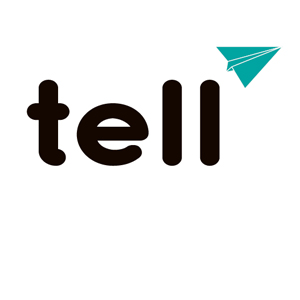Data is fast becoming one of the world’s key resources, with some people even going as far as to classify it as the oil of the 21st century. Now, more and more firms are trying to tap this asset to drive growth and improve efficiency.
This is just as true in the world of pharmaceuticals, and a reminder of the possibilities came on 31 August when GlaxoSmithKline K.K. (GSK) announced that it would begin using the text mining technology of SciBite Limited, a British firm that has created what it calls a semantic platform for extracting and identifying data and relationships in biomedical text. GSK will use the technology for the purpose of pharmacovigilance—the science and activities involved in detecting, assessing, understanding and preventing adverse effects of drugs.
This is typically done by reviewing individual papers and, at the moment, Japanese firms use a laborious, human-centric process employing specialists to do this. In addition to being time consuming, there is a chance of mistakes being made, as each paper needs to be reviewed quickly given the sheer volume of text that needs to be checked.
“This new technology will help us to enhance our pharmacovigilance capabilities in Japan, and enable us to reach timely, well-informed decisions”, said Kihito Takahashi, GSK’s vice president and senior managing director of the development and medical affairs division.
“For pharmaceutical companies, pharmacovigilance is one of the most important activities. By combining our human-centric expertise and innovative technology, we will keep driving high quality pharmacovigilance that meets local requirements and needs for our patients”.
No stone unturned
The key to SciBite’s work is its world-leading vocabularies covering millions of diseases, phenotypes and other biomedical phenomena. It is this that enables the software to be so comprehensive in highlighting relevant information in pharmacological texts, which can then be converted into data points that can be analysed further.
“The concept that they could get a much higher degree of certainty around this was very interesting to [the pharmacovigilance team], and the majority of what they have to review is in English”, said John Bolger, SciBite’s general manager for Japan, who has worked in pharmaceutical software systems for more than 20 years.
Although still a relatively young technology, other applications are also becoming apparent. One is repurposing—the finding of new applications for existing drugs. Launching a new drug can cost more than $1bn, and so the possible savings of repurposing are immense. By combing through the scientific literature, SciBite can identify papers that hint at new uses for drugs, opening up additional avenues for further research.
SciBite can also be used for tracking competitors’ research and assessing the relative strengths and weaknesses of drugs that have not yet reached the Japanese market. And it is likely that the partnership with GSK will yield new uses as well.
“The technology is so new that we are learning how to use it”, said Bolger. “At the same time, we will learn from them once they start to power up their use strategies, which they are already doing. We will learn from them how they found it to be useful as well, because there is really very little limit on what you can do”.
Keeping ahead
The seeds of GSK’s adoption of SciBite were sown at a British Chamber of Commerce in Japan (BCCJ) event after Bolger gave BCCJ Executive Committee member Philippe Fauchet OBE, then president of GSK Japan and now the firm’s chairman, an elevator pitch about SciBite’s technology. And Bolger believes the endorsement of such a high-profile firm is key to SciBite’s development.
“I think that, for these types of creative new solutions, you have to go to the top—without solid sponsorship for evaluating them at the top, it’s not going to happen. That’s more true in Japan than anywhere”, he said. “It’s very difficult to push new technologies that you don’t know you need from the bottom up.
“I think it was a breath of fresh air and inspirational the way they moved ahead with SciBite”.
With data becoming ever more important to business, it is an attitude that other firms will need to adopt, if they haven’t already.
“I think that within a decade this technology will touch everything we do”, said Bolger. “Firms who are not utilising this type of technology at the moment will risk essentially falling behind the curve”.






